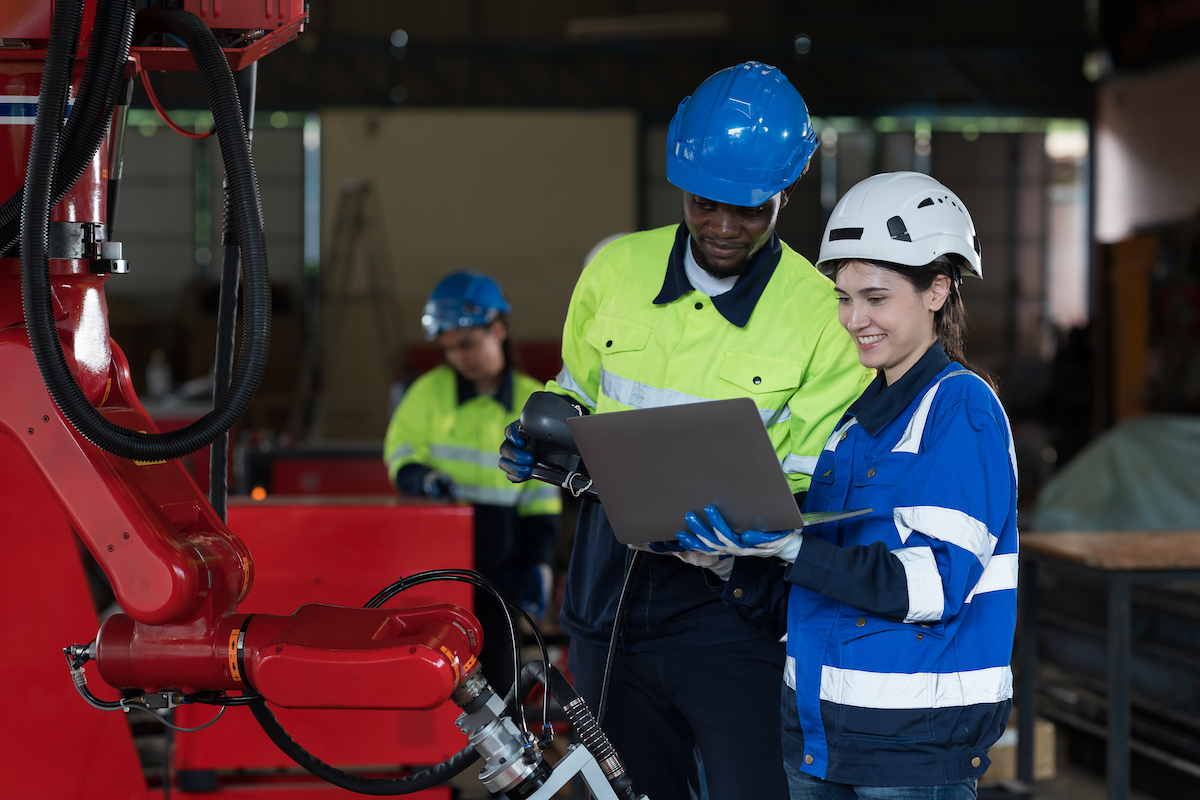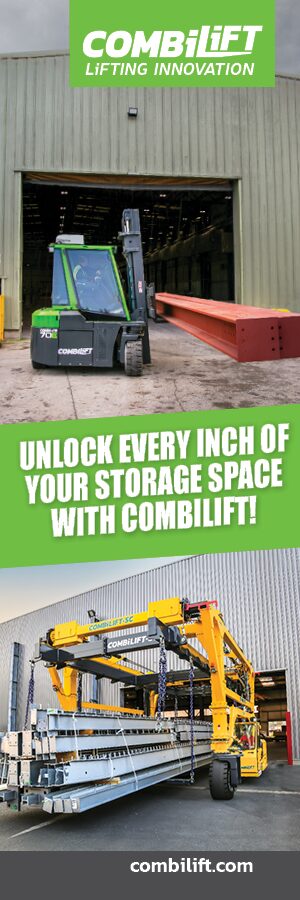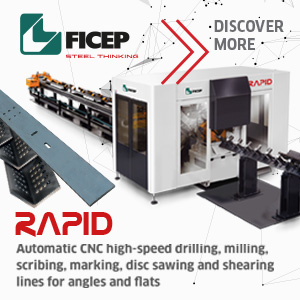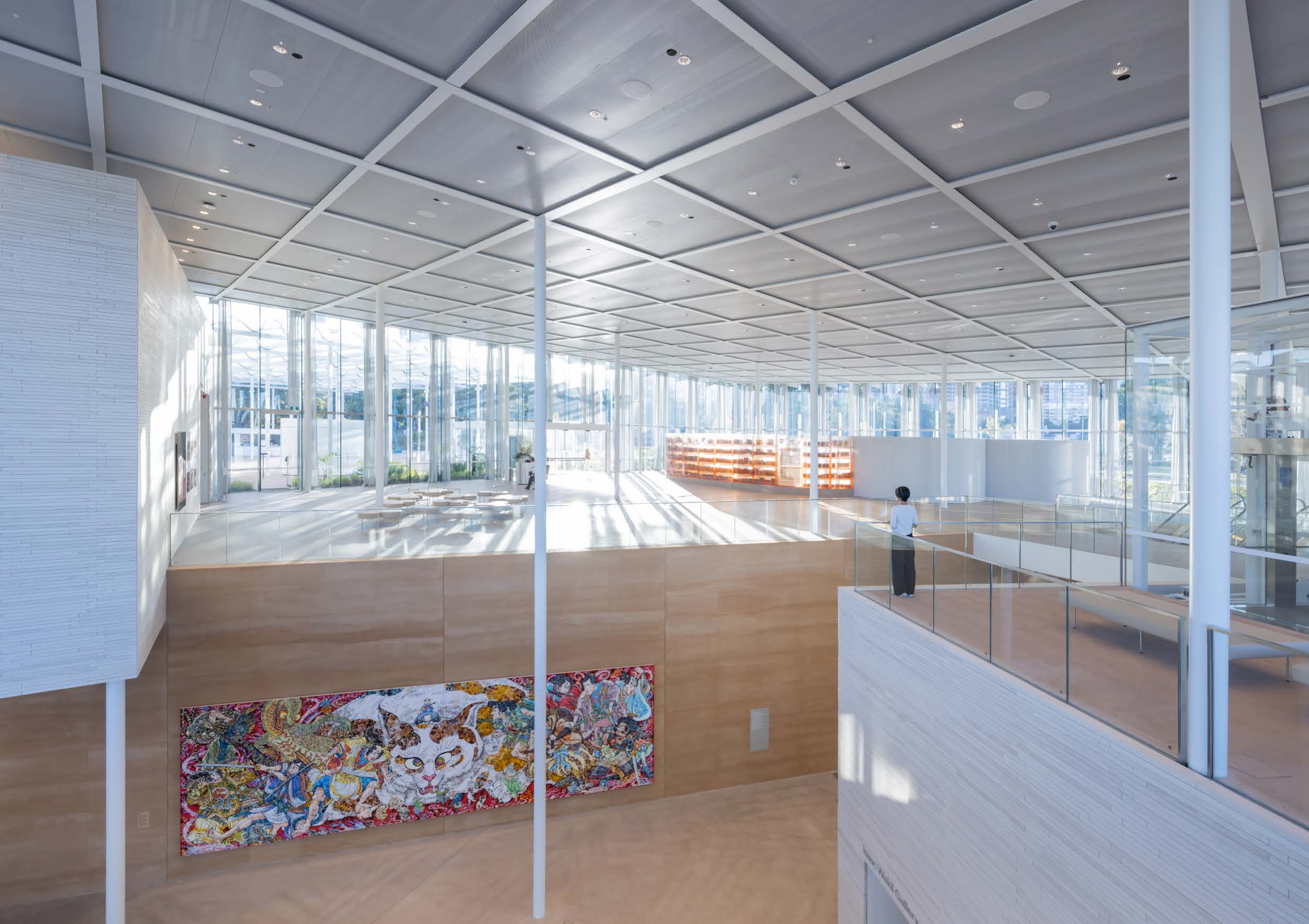How the ASI is helping industry forge new pathways into steel
As Australia’s steel sector looks to the future, one thing is clear: the sustainability and growth of the industry will depend on a pipeline of skilled, motivated workers ready to take on tomorrow’s challenges.
Australian businesses—including those throughout the steel supply chain—are facing the tightest labour market since the 1970s. With skills shortages impacting everything from productivity, through to economic growth, businesses
are implementing a raft of innovative recruitment, retention, upskilling and training programs.
That’s why the Australian Steel Institute (ASI), in collaboration with its South Australian members and the state government’s Department for Education, is investing in the development of future steel trades through a dynamic new schools-based initiative.
The program is already demonstrating the power of collaboration between industry and education.
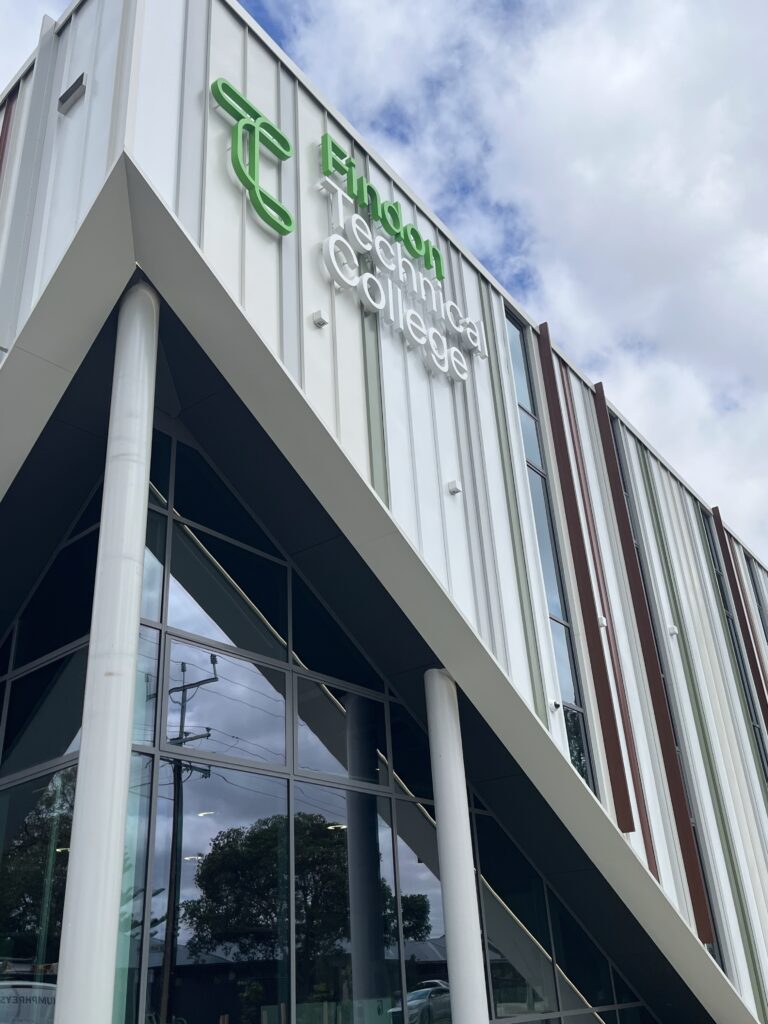
Connecting students with industry
The ASI hosted a site tour and networking event at the newly opened Findon Technical College, bringing together more than 20 representatives from companies including BlueScope, Liberty GFG, Stratco, Maxispan, Bowhill Engineering, LAI Group, Lincoln Engineers and Woods Constructional Engineers. Many of these companies have expressed interest in offering work experience, apprenticeships, and future career opportunities for students.
The purpose of the visit was to connect steel fabricators and manufacturers with educators and students, explore opportunities for work experience and apprenticeships, and build awareness of the Findon campus as a key hub for trades training—particularly in fabrication, welding and engineering.
Two ASI fabricator members—Lincoln Engineers and Tri-Metal Engineering—played a direct role in constructing the Findon campus, adding a layer of pride and ownership to their continued involvement with the college.
The ASI has assisted in the placement of Findon Technical College students with fabricator members such as LAI Group, Lincoln Engineers, Tri-Metal Engineering and Bowhill Engineering through a structured one-day-per-week workplace learning program. These placements
are matched based on location and industry needs—ensuring relevance and accessibility for both students and employers.
According to Clare Feszczak, Executive Director of Findon Technical College, local industry has been essential in supporting the new college. “Local industry and employers have been resoundingly supportive.”
“A unique feature of the technical colleges is the employer partners that sign up to contribute to the design and the delivery on the basis that they get to pick graduates for jobs within the industry. The employer partners for advanced manufacturing and engineering at Findon Technical College are Liebherr, Axiom Engineering and BAE Systems with lots of other employers involved in offering work experience and workplace learning.”
“ASI members may get involving by supporting the delivery, offering industry immersion activities or workplace learning for the students at one of the three technical colleges offering advanced manufacturing and engineering,” said Feszczak
For Samantha Krollig, HR Manager at Bowhill Engineering, the connection between school programs and industry engagement couldn’t be more important. “The Findon event was a great opportunity to see firsthand how the Department of Education is delivering practical learning,” she says. “We’ve already had two Findon students complete work experience with us—and it’s been fantastic.”
Bowhill Engineering has long prioritised apprenticeship development, currently employing 14 metal fabrication apprentices at its facility. “We anticipated the skilled labour shortage years ago and chose to act by increasing our intake,” Krollig explained. “Being a regional business, we’ve also built strong relationships with local schools and that’s made a real difference in
attracting talent.”
Krollig says one of the key barriers to attracting young people to the industry has been a lack of awareness—among both students and their key influencers. “There’s a gap in understanding what careers in steel can look like. That’s why we’ve worked with ASI to help bridge that gap—through events, school engagement and, importantly, careers expos.”
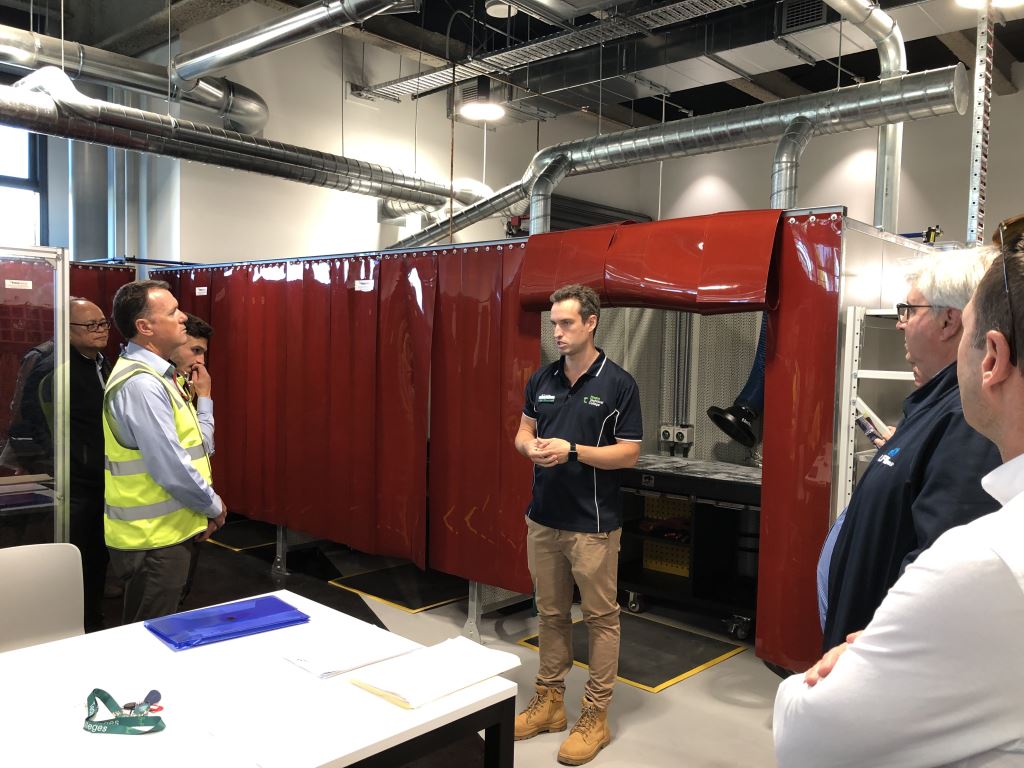
Spotlight on Findon Technical College
According to Clare Feszczak, Executive Director of Findon Technical College, “Findon Technical College is one of five state-of-the-art facilities where school students in years 10, 11 and 12 can develop their skills for careers in in-demand industries in South Australia. It opened in 2024 and was the first one to open.”
“Technical colleges are an initiative of the South Australian Government who have invested $208.8 million to build five technical colleges, three in metropolitan Adelaide and two in regional South Australia.”
“The technical colleges offer hand-on, practical learning for school students to develop their skills while in school and fast-track to their career in a well-paid job. Students complete the technical college program with their high school certificate, VET certificates, experience and all the skills needed by the industry.”
“Each technical college offers up to four industry training programs, designed and developed with employers so that students are learning the technical and the employability skills needed in industry.”
“Advanced Manufacturing and Engineering (AME) is one of the industry training programs offered at Findon Technical College. It is also offered at the Heights and Tonsley technical colleges. In the AME program students learn on industry standard equipment including virtual welders, lathes and laser cutters to develop their basic engineering, welding and fabrication skills along with computer-aided design skills,” said Feszczak.
Amplifying the message at careers expos
The ASI’s work to promote steel industry careers didn’t stop at the school gates. The ASI also coordinated and managed a dedicated Australian Steel Industry exhibitor space at the Adelaide Careers and Employment (ACE) Expo in 2024. The stand, funded by the South Australian Department for Education as part of its Student Pathways Hub, featured strong representation from ASI members including BlueScope, Bowhill Engineering, Gadaleta Steel (Australian Steel Detailers), Stratco, Maxispan and LAI Group.
The event was a great success, with approximately 8,800 students and 700 teachers in attendance.
“We were fortunate to have a virtual welding simulator on the stand, which really helped draw students in,” said Krollig. “Once they were there, we had a chance to talk to them—and their parents—about the real-world opportunities available in steel.”
According to Krollig, the event was a valuable opportunity to make direct connections with young people and their families.
“We’ve long seen a gap between students—and their parents—and what they know about careers in steel,” she said. “The Expo gave us a platform to talk to them face to face, show what’s possible, and highlight the rewarding career paths available across the industry.”
Krollig praised the ASI for its leadership in driving the industry’s presence at the event. “Having ASI create these opportunities to connect with future talent is essential to keeping that pipeline strong.”
Tools to support career pathways
The ASI’s work in South Australia builds on a broader national effort to create a more visible and attractive career pathway into the steel industry. In consultation with its members, the ASI has developed a suite of promotional materials—including videos, brochures, presentations, and flyers—designed to raise awareness among students, teachers, and careers advisers.
All resources are freely available to ASI members via the ASI Jobs Portal and are being actively used in schools, expos, and careers presentations across the country. “These tools help us tell the steel industry story,” said Krollig. “There’s so much diversity in what the industry offers—but without that visibility, students may never consider it. The ASI’s materials give us something tangible to share with schools, and they help drive interest in VET programs like Certificate II in Engineering.”

A model for the future
The ASI’s leadership in South Australia is proving to be a model that can be replicated across the country. The Findon initiative has already opened doors for stronger industry-school engagement, while the Careers Expo has shown what’s possible when government and industry work together to promote practical trades careers.
The ASI will continue to support these efforts as more technical colleges come online across the state, including in Port Augusta, Mount Gambier, Modbury Heights and Tonsley.
For the ASI, this initiative is just one example of how strategic, member-driven action can shape the future of Australia’s steel industry. By creating meaningful connections between education and industry, and by investing in student pathways today, ASI and its members are ensuring a stronger, more sustainable tomorrow.

